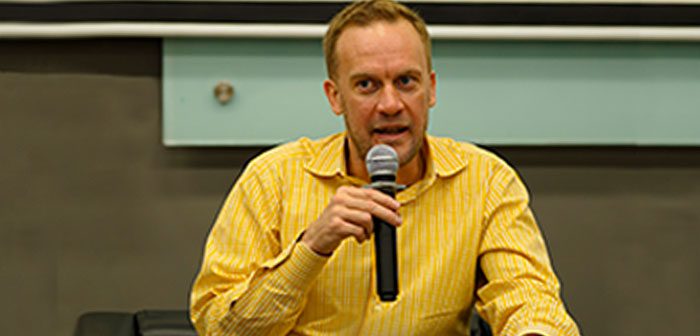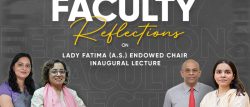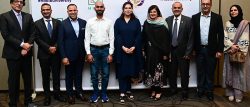“We (Stanford University) can learn from Habib’s Liberal Arts model and especially the Liberal Core which says, _if you (students) want to be an engineer, it’s good, but we will make sure to equip you with more options for future.” were the thoughts by Dr. Alexander Key, Associate Professor of Arabic and Comparative Literature and Director of Stanford, Humanities Core on: Liberal Arts Education: Myths and Misconceptions, today at Habib University.
Dr. Key continued by saying, “Liberal Arts education is a label used for small, elite, teaching focused institutions in the US.” Yet, it is an essential element in preparing young 18 to 24 year-old individuals in facing the issues afflicting the world, explained Dr. Key.
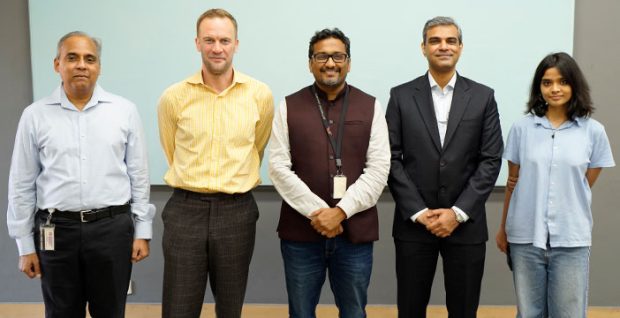
Mr. Alexander Key, with the faculty members of Habib University.
As an institution, “You want students to leave after 4 years and be successful and the best way to do is to give them options for what they want to do with their lives for the next 10-20 years,” said Dr. Key. This is where a liberal arts education is so important, as it provides students an opportunity to engage with a breadth of knowledge and flexibility in learning.
Please watch complete video to learn more about Liberal Arts Education: Myths & Misconceptions
He cited the example of the US, where many students take up vocational jobs at an early age and by the time, they are 30 years old, are not happy and have no recourse for the future. This, Dr. Key stressed was why a Liberal Arts education was so important as it provided choices to students.
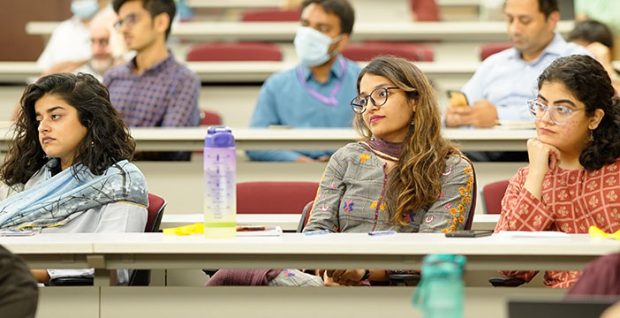
The Faculty and Staff of Habib University eagerly listening to Mr. Key’s address.
In a country where vocational education still holds sway, Dr. Key appreciated the role that Habib University was playing in bringing a positive change to higher education. “Habib University’s commitment to the liberal arts is truly valuable,” he added, stating that what made the university attractive was the intellectual confidence of the high-quality faculty and their understanding of the need to teach their students within the context of being in Karachi in the 21st century. He further went on to say that institutions like Habib University, are really productive, and empower diverse student body with diverse experiences.
Dr. Key further stated that in the modern workplace, employers were looking for individuals who had a certain skill set rather than a particular degree, and what sets you apart is your broader frame when referring to the outside world – the blend which Liberal Arts Education provides.”
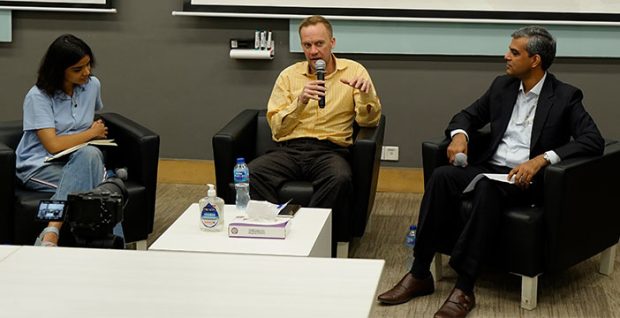
Mr. Alexander Key, talks about the focus of Liberal Arts education in Pakistan, as moderators Waqar Saleem, Associate Professor, Computer Science at Habib University and Amna Shoaib, from the Class of 2020, Social Development and Policy, at Habib University looks on!
FURTHER READINGS

